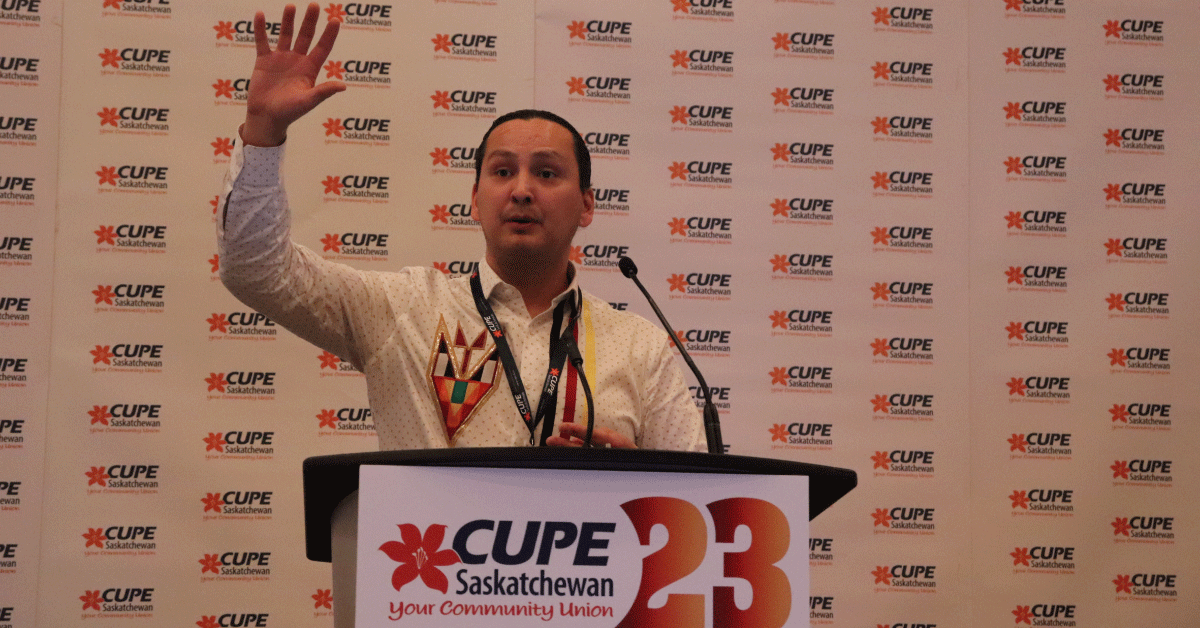Cadmus Delorme, Chief of Cowessess First Nation, delivered an important message to delegates at the CUPE Saskatchewan convention on the need for everyone to act on Truth and Reconciliation and the 94 calls to action.
“We cannot even talk about reconciliation until we understand and accept the truth, and reconciliation can only happen with uncomfortable conversations,“ Delorme said, referring to the identification of unmarked graves at residential school sites across the country, including at Cowessess First Nation. “We inherited this moment, and no one needs to feel guilty. But we need to have these conversations.”
Chief Delorme, who was first elected Chief of Cowessess First Nation in 2016, told his personal story about the impact that generational traumas in his own family.
“My parents were and are residential school survivors,” Delorme said. “I grew up on Cowessess and we knew there were unmarked graves. But our parents and grandparents didn’t talk about it. They protected us. And today, indigenous people are now just validating our own history.”
Delorme added that the ongoing discovery of unmarked graves is an opportunity for people to learn, to do better, and that facing the truth will allow for reconciliation to take place.
“Let’s make sure we utilize this moment, and reset our compass, so that we’re able to have a better relationship. We all agree on the end goal of reconciliation – we just disagree on how to get there.”
Delorme concluded by emphasizing the need to address all 94 calls to action from the Truth and Reconciliation Commission.
“We’re going to get there, but we have to be understanding of truth, and applying reconciliation. We’ve got to do it. The authors of the TRC are the residential school survivors who told their story. Some are in this room, they are part of CUPE,” said Delorme. “When we’re doing this, we are healing them. Let’s start with truth, then let’s talk about reconciliation. That’s the hope in our society today.”
/nm cope342

